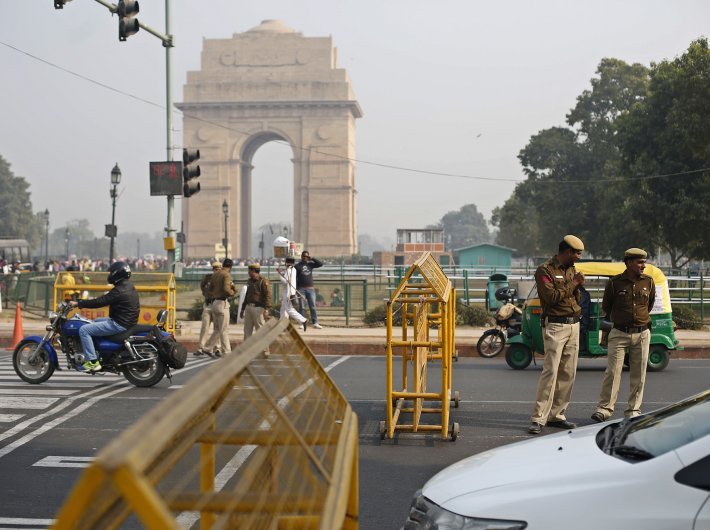We do not want to prioritise city-governance rules and laws; all we want is the look and feel of a foreign city
A stretch of road running about a couple of kilometres in east Delhi is very much the core of deputy chief minister Manish Sisodia’s constituency. In recent months, the civic authorities (which do not come under Sisodia’s command) forcibly removed from the footpaths people why used to run their small-time business from there: tea vendors, washer men and the like.
That, however, has not helped the matter and the road remains as congested as before. A couple of localities touching this road are urban villages, where applicable building bye-laws are a bit different. In particular, these places have no space to park vehicles, so all hundreds of cars are parked on either side of the main road. But why blame the urban villagers alone? The so-called ‘society flats’, which adhere to modern-day building bye-laws, were built way back in the 1980s when nobody could’ve imagines the car population in the capital would reach such levels that people would even resort to shooting to corner the space for their vehicles. So, residents of these apartments also put their cars on the side of the road. This is a permanent parking, excepting business hours. Thus, the wide road continues to witness increasing traffic congestions during rush hours – even as the footpaths (where they can be demarked) are clear.
As a result, a part of the crores of rupees spent in building this road stands wasted. The authorities might have built it smaller and saved money. The encroachment on the road must be removed, and it is difficult to imagine any argument against this solution. But in Delhi, or for that matter any Indian city, the authorities firstly do not notice the problem. If noticed, each of them thinks this problem comes under somebody else’s jurisdiction.
And, yet, removing encroachment itself is never an insurmountable challenge. When the authorities want to do it for some reason pressing for them, they go ahead and do it. Running parallel to this road barely a couple of hundred metres away is National Highway 24, which is expanding on its sides as part of Delhi-Meerut Expressway project, and notwithstanding Delhi’s notorious multiplicity of authorities, they all have joined hands and razed several building to grounds within days.
This area, covering half-a-km radius of the landmark Mother Dairy plant, tells you why chief minister Arvind Kejriwal is trolled on social media for wishing to turn Delhi into London.
Why this much recurring London-Paris dream of our politicians remains only a dream can be best understood in the framework of the ‘Annual Survey of India’s City-Systems’, published by Janaagraha, the Bengaluru-based policy campaigner organisation, only last week.
The survey has highlighted where various Indian cities stand in comparison to London and New York on the given set of parameters. Here’s one which is illustrated with the case study of Patparganj road above:
“Does your city have effective mechanisms to deter plan violations?”
“The reason we see encroachments to lakes, footpaths and storm water drains, illegal expansions, building collapses and protests over demolitions repeatedly in headlines is because no city has any policy in place that deters plan violations.”
Thus, in the survey ranking, all Indian cities score 0.0, whereas London and New York both score perfect 10.0 each.
Here are the rest of the parameters – or the roadmap to turn Delhi and Mumbai into London and New York:
A1. A decentralised system of spatial development planning (SDP)
A2. Ability to implement SDPs successfully
A3. Effective mechanisms to deter plan violations
A4. Encouragement to participatory planning
B1. Adequate investment in public infrastructure and services
B2. Adequate number of skilled human resources
B3. Optimum use of information technology (IT)
C1. Adequate power to leaders
C2. Truly democratic city governance
D1. Putting out adequate information and facilitate citizen participation
D2. Addressing citizen complaints well
Turn to page 8 of the Janaagraha survey for detailed explanation of each parameter, and where Indian cities stand (New York and London uniformly score close to perfect ten).

